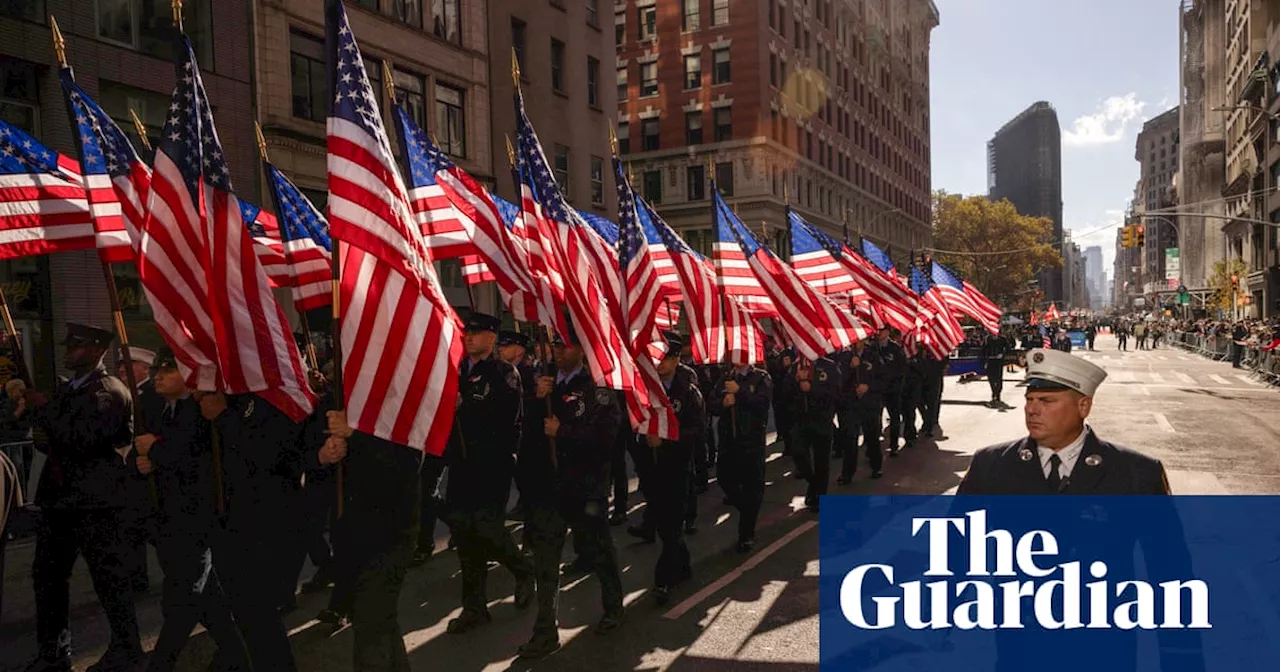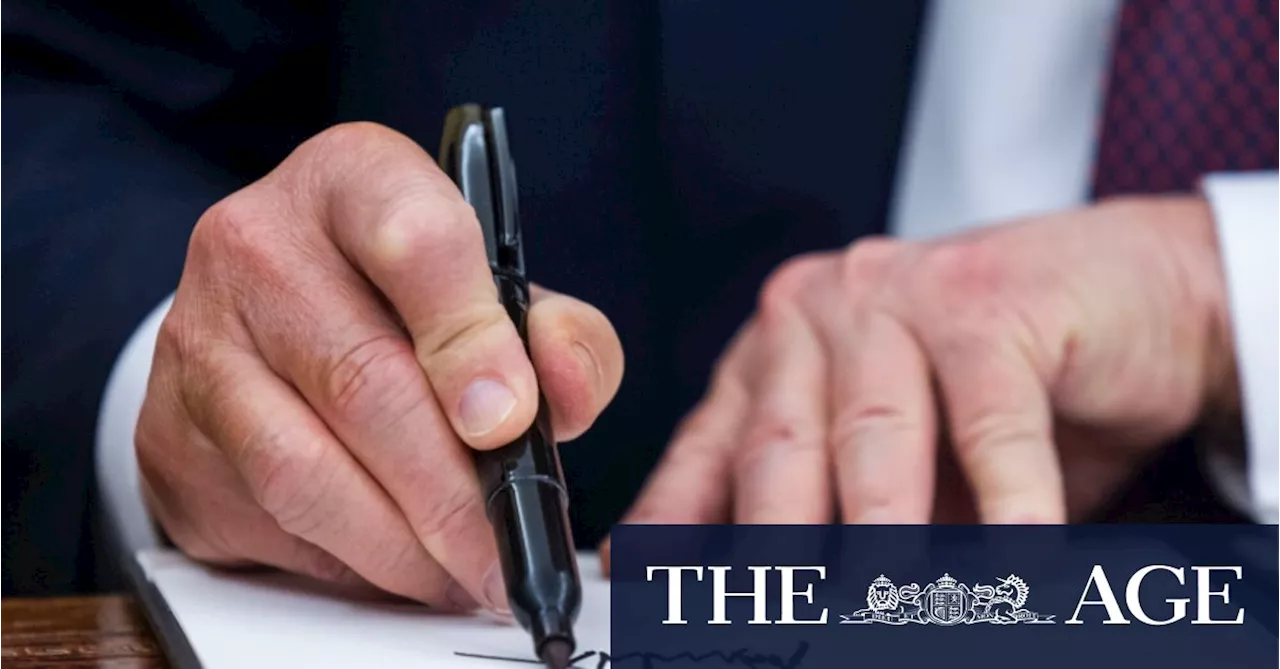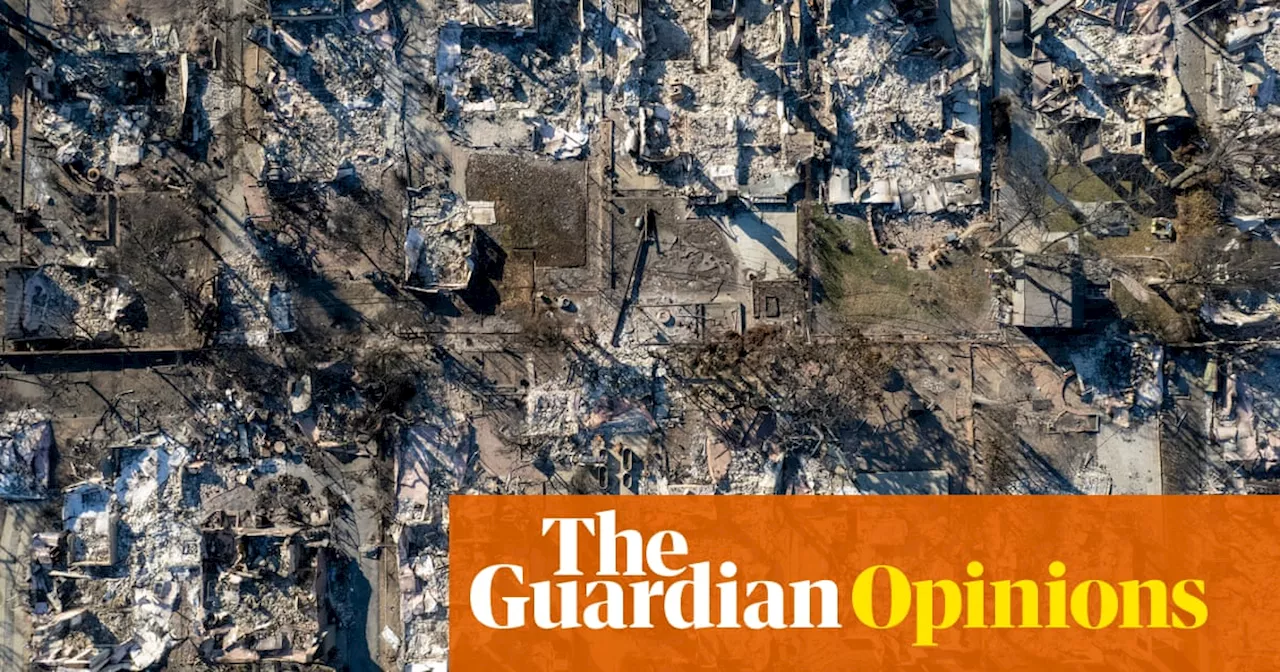If someone's house burns down, it's not the time to tell them to get out. The article argues against giving unqualified advice to those affected by California's wildfires, emphasizing the need for empathy, understanding, and community support.
If you\u2019re an out-of-towner, it\u2019s tempting to urge Californians to get the hell out. But please don\u2019t do that. When you ask it of people in bad romances or miserable careers, they can be forgiven for ghosting. The word \u201cjust\u201d is the poison. As if leaving were simple. It is never simple. The reasons to stay in a job or a relationship – children, money, comfort, love – can be every bit as compelling as the reasons to hit the road.
Fires moved fast this year, and they were relentless. In less than a week, the fires razed more than 12,300 buildings in and around Los Angeles. Twenty-five people were killed. Smoke and toxins choke the air. More than 11 million acres have burned in California this year alone. Hold off. Hold the hell off. This is an extremely fragile time in California. When people lose their homes, whether in fire or evacuation, they also lose clothes, family photos, a world of creature comforts and often, most heartbreakingly, pets. In demanding that people leave their homes, we may be asking them to leave the most important thing of all: their communities and their loved ones. Is an actuary-calculated measure of safety from wildfires worth giving up intimacy and proximity to the people who make life worth living? David Graeber and David Wengrow put this calculus succinctly in The Dawn of Everything. \u201cThere is the security of knowing one has a statistically smaller chance of getting shot with an arrow,\u201d they wrote. \u201cAnd then there\u2019s the security of knowing that there are people who will care deeply if one is.\u201d Dr. Lisa Koenen, a psychologist, who investigated the psychological effects of the 2018 Paradise fire in California, echoed this sentiment. \u201cTo prevent long-term mental health consequences is to address people\u2019s basic needs for a safe place to live, for food, for work,\u201d says Koenen. And yet, the response to the California fires from some quarters has come dangerously close to impatience, even to I-told-you-so. \u201cThe biggest thing to note about these fires in LA\u201d said one Oregon climate expert, \u201cis that none of this is surprising.\u201d No doubt this kind of observation is well-intended. But it\u2019s not the time, and it never will be. Unsurprising tragedies – an addict\u2019s overdose, a cancer patient\u2019s death – are still tragedies. I lived in New York City on 9/11. As the two enormous holes were smoking, the air suffused with asbestos and death, people from out of town kept telling me the attacks were predictable to anyone who had followed developments in the Middle East. They said I should leave. These people too were well-intentioned. And maybe they were right. But the bodies hadn\u2019t even been counted. We New Yorkers hadn\u2019t yet been able to confer with each other about the city\u2019s present dangers and possible futures. We hadn\u2019t grieved, we hadn\u2019t taken inventories of our needs and our values, we hadn\u2019t even started to plan. Eventually, in public and private discussions among ourselves, New Yorkers, together, found clarity and confidence in our personal decision-making about whether to stay or leave. Some picked up stakes. Some stayed and took heavy precautions. Some kept calm and carried on. Some played it by ear. I\u2019d like to say, as I empty my pockets and submit my bag to security goons outside every comedy show and piano recital, that I never regretted my decision. But I rethought it constantly. Now, 24 years later, I still do. Angelenos must be afforded the same agency, autonomy and space to make – and rethink – and qualify – and act on their own choices. All of us, no matter where we live during the climate crisis, deserve that. \u201cHundreds of millions of Americans are about to have a collision with planetary reality,\u201d wrote the climate futurist Alex Steffen recently. Steffen, who teaches, emphasizes that there is no one-size-fits-all response to that reality. Instead he urges participants to \u201cbecome native to now\u201d, \u201cdevelop a healthy relationship to discontinuity\u201d and \u201cmove from climate isolation to community\u201d. All of us, let\u2019s leave, along with know-it-all-ism and solitary bunker-building. As fires and floods increasingly define our world, we don\u2019t need advice or loaded questions. We need solidarity, imagination and mutual respect
CALIFORNIA WILDFIRES CLIMATE CHANGE COMMUNITY SOLIDARITY EMOTIONAL SUPPORT
Australia Latest News, Australia Headlines
Similar News:You can also read news stories similar to this one that we have collected from other news sources.
 LGBTQ+ Veterans Can Update Discharge Papers to Remove Mention of SexualityA historic settlement allows LGBTQ+ veterans discharged under 'don't ask, don't tell' to update their records and remove references to their sexuality.
LGBTQ+ Veterans Can Update Discharge Papers to Remove Mention of SexualityA historic settlement allows LGBTQ+ veterans discharged under 'don't ask, don't tell' to update their records and remove references to their sexuality.
Read more »
 Why tell someone ‘I love you’ when you could overfeed, ridicule or ignore them?The holidays have reminded me of the many languages of love – most of them barely comprehensible
Why tell someone ‘I love you’ when you could overfeed, ridicule or ignore them?The holidays have reminded me of the many languages of love – most of them barely comprehensible
Read more »
 ‘Tell everyone who I want’: Madge urges Broncos to keep $800k star duo — Transfer WhispersNRL: The agent of Parramatta Eels and New Zealand Kiwis star Dylan Brown is reportedly seeking expressions of interest from rival clubs for 2026 and beyond.
‘Tell everyone who I want’: Madge urges Broncos to keep $800k star duo — Transfer WhispersNRL: The agent of Parramatta Eels and New Zealand Kiwis star Dylan Brown is reportedly seeking expressions of interest from rival clubs for 2026 and beyond.
Read more »
 ‘I’ll tell you what weakness is’: PM turns on Peter Dutton over guts and gloryThe prime minister has shifted his attack on Peter Dutton from portraying the opposition leader as dangerous to describing him as gutless with no solutions.
‘I’ll tell you what weakness is’: PM turns on Peter Dutton over guts and gloryThe prime minister has shifted his attack on Peter Dutton from portraying the opposition leader as dangerous to describing him as gutless with no solutions.
Read more »
 ‘I’ll tell you what weakness is’: PM turns on Peter Dutton over guts and gloryThe prime minister has shifted his attack on Peter Dutton from portraying the opposition leader as dangerous to describing him as gutless with no solutions.
‘I’ll tell you what weakness is’: PM turns on Peter Dutton over guts and gloryThe prime minister has shifted his attack on Peter Dutton from portraying the opposition leader as dangerous to describing him as gutless with no solutions.
Read more »
 What Trump’s first four days tell us about the next four yearsDonald Trump always said he would put America first. His barnstorming return to executive power shows he intends to do so with an American fist.
What Trump’s first four days tell us about the next four yearsDonald Trump always said he would put America first. His barnstorming return to executive power shows he intends to do so with an American fist.
Read more »
